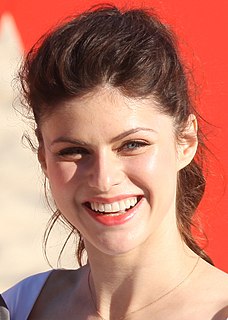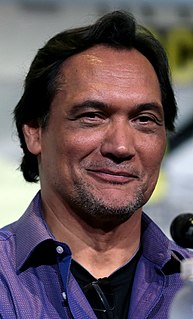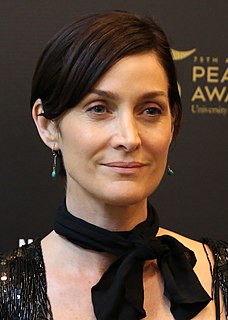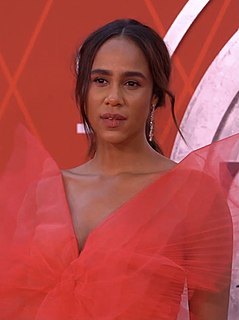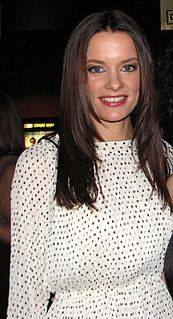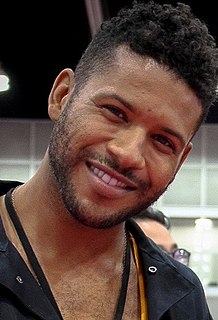A Quote by Beth Grant
Tone is so important because you can have a great script just be ruined with the wrong director - if they shtick it up or something. With 'Little Miss Sunshine,' I was so concerned they weren't going to play the pageant official realistically because you don't have to wink to play those kinds of characters.
Related Quotes
I think it's interesting playing characters who are flawed and make mistakes because we all have - no one's just one thing - no one is just bad or just good - so I like finding flawed characters and playing with their redeeming qualities, whether you play it outwardly or not. I think that one of the reasons I'm an actor is that I love people and I love finding out who they are and why they do the things they do, so it is fun to play those kinds of characters.
Just play the moment, that's the fun of it. You just play the moment. It's great writing and very clever writing, I think it's witty. And I have those great clothes. You have a great, witty, intelligent script and you look like a million dollars, because we have a great costumer, and it's a pretty good place to begin.
In the 1990s I got to play in a group that played in prisons in California. We would play in maximum security wards. It was infuriating. Those kinds of situations stick with me. We got to come in and play music for them because that's a way of caring, just offering something, a gift, basically. They're basically the most grateful audiences I've ever experienced, because nobody's giving them anything.
Yeah, because we wanted to go back to the original tone. It's one of the original movies like The Muppet Movie, Muppets Take Manhattan, The Great Muppet Caper. Those kinds of movies. So that was really important that we hit that tone and those have a lot of cameos in them and so Jason and I started asking people and everyone we asked just wants to do it.
It's great to be able to play the bad guy role because you always get a lot to do, but I'm always looking at the why. How does a person get to that particular point? It's those little cogs in the wheel that make it interesting for me to play. Ultimately, I hope for the audience to be engaged with it because it is going to take a turn.
I always try to stick to the script because I want to respect the writers, and I want to respect the director. But if the director and my fellow actors are okay with me playing with it a little bit, then I definitely want to play with it. I definitely want to do that, because I tend to... when I put things in my own words, it comes out way better. It flows naturally, it just feels better. I can put some weight into the words. Even in comedy, it just comes better.
It's important for people of colour to have the opportunities to play characters that are as nuanced - as three-dimensional, as human - as the characters who we traditionally see getting to play the protagonist. The good guys and the bad guys. The reason that is important is because it's a better reflection of the reality of the world we live in.
I love my job. It's such a privilege to be able to play such complicated characters. Growing up, I wanted to be a billion different things. I realized in order for that to happen, I don't have to be them all because the characters I want to play require such research and such a transformation to make that work - that's something that I love doing.
I feel like, for so many years in the industry, LGBT-identifying actors were told to play small or water themselves down or 'butch it up,' whether you're a male and you're only going out for straight characters because gay characters aren't being written, or you're a woman and you're told to 'femme it up' to play the leading lady role.
For me, it's always more difficult and slightly exposing to play something that's close to yourself. I always like to try to hide, just because I can't stand the way I look. But, I think it's important to change every time and come up with something that's as interesting as it can be, for your characters.

